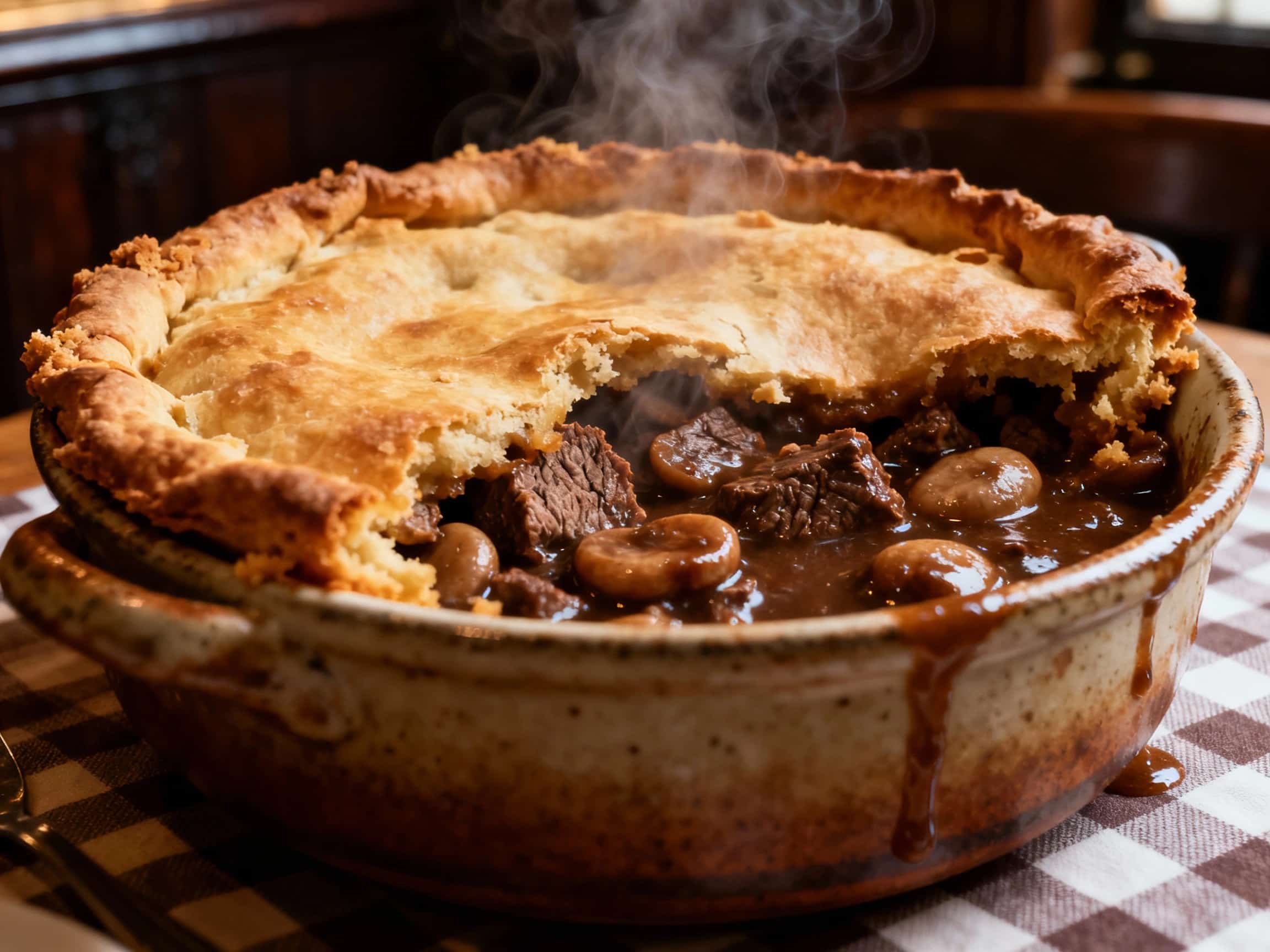
Steak and Kidney Pudding
Steak and Kidney Pudding
- Country
- United Kingdom
- Region
- England
- Recipes
- 3 Recipes
Origins & Characteristics of Steak and Kidney Pudding
Steak and Kidney Pudding is a cornerstone of traditional British pub fare and home cooking, embodying hearty comfort food at its finest. Its origins can be traced back to the Victorian era, a time when suet pastry became a popular and economical way to enclose savory fillings. The pudding's structure, a rich suet crust encasing a slow-cooked, deeply flavored stew of beef and kidney, offers a distinct textural and taste experience. While the exact inventor is unknown, the dish likely evolved from earlier forms of steamed or baked meat puddings common in the British Isles. The use of suet, rendered beef fat, provides a unique richness and a distinctive texture to the pastry, which becomes tender yet robust when steamed or baked. Kidney, traditionally lamb or beef, adds a characteristic pungent flavor that complements the beef, melding into a savory gravy often thickened with flour and seasoned with Worcestershire sauce, onions, and sometimes herbs like thyme or bay leaves. This dish has been a staple for working-class families due to its use of less expensive cuts of meat and filling suet. Its enduring popularity is evident in its frequent appearance on menus of traditional British pubs and its celebrated status in cookbooks dedicated to classic British cuisine. It represents a culinary heritage that values robust flavors and substantial meals, often associated with colder weather and cozy evenings by the fire. The dish is a testament to the ingenuity of British home cooks in transforming humble ingredients into a deeply satisfying meal. Its comforting nature has made it a beloved classic, passed down through generations. The robust flavors and satisfying texture make it a true embodiment of British culinary tradition, often enjoyed with a pint of ale.
History of Steak and Kidney Pudding
Suet pastry becomes popular for savory puddings in Britain
Steak and Kidney Pudding likely evolves into its recognizable form
Became a staple in traditional British working-class households
Popularity grows in British pubs and dining establishments
Revival of interest in traditional British comfort food


